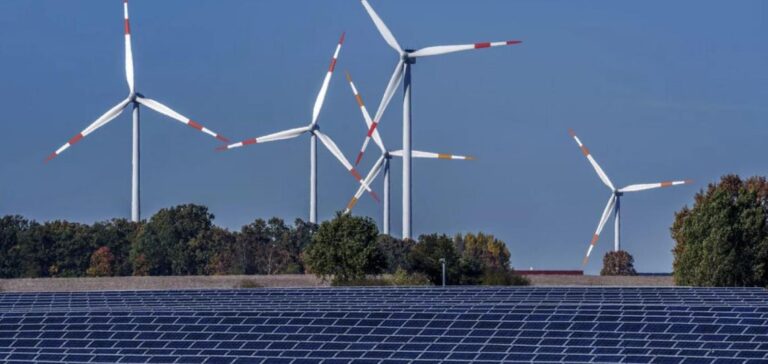Germany, a pioneer in renewable energies, is planning a radical transformation of its subsidy system. The coalition government is proposing to replace guaranteed prices with one-off subsidies covering investment costs for energy producers. This reform aims to make the renewable energy industry less dependent on government subsidies and more integrated into the free market.
Currently, the German subsidy system, introduced 24 years ago, offers guaranteed prices over 20 years for solar, wind and biogas energy fed into the grid. This model has made it easier to make investment decisions and obtain advantageous loans, contributing to the rapid expansion of renewable energies in Germany. Berlin aims to cover 80% of its electricity needs with renewable energies by 2030.
Sector reactions and outlook
The new reforms, although not yet scheduled, are part of the government’s aim to develop renewable energies without subsidies in the long term. However, this change does give cause for concern. Producers will have to sell their electricity on the basis of their own market calculations, thereby assuming greater financial risks.
The reform has been sharply criticized by coalition partner FDP (Freie Demokratische Partei), which believes that the 20-year subsidies are no longer justified. “This switch to subsidies for investment costs is a real revolution in energy policy,” said Lukas Koehler, deputy leader of the FDP parliamentary group.
Market challenges and uncertainties
According to preliminary data from the BDEW (Bundesverband der Energie- und Wasserwirtschaft) and the ZSW (Centre for Solar and Hydrogen Energy Research), renewable sources covered 58% of electricity needs in the first half of the year. However, there are some voices against this reform. Simone Peter, President of BEE (Bundesverband Erneuerbare Energie), expressed concern about the market uncertainty and reluctance to invest that this transition could engender.
Robert Habeck, Minister for the Economy, has indicated that the government will test various models for this change in subsidies. “The radical shift to subsidies for investment costs risks creating uncertainty in the market and holding back investment, which could seriously compromise ambitious expansion targets,” Peter warned.
Germany continues to navigate a rapidly changing energy landscape, seeking to reconcile sustainable development with the full integration of renewable energies into the market. This subsidy reform marks a crucial step towards greater energy independence, but not without its challenges and resistance.






















